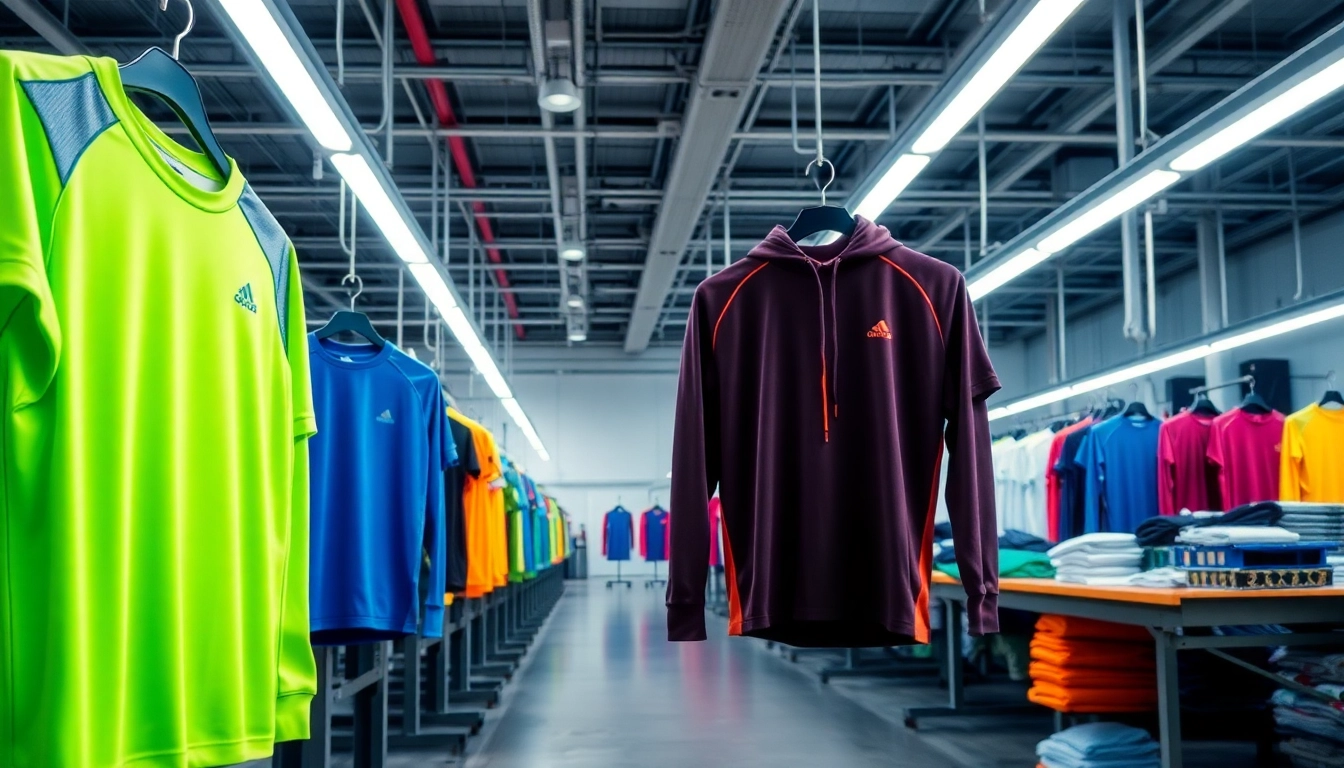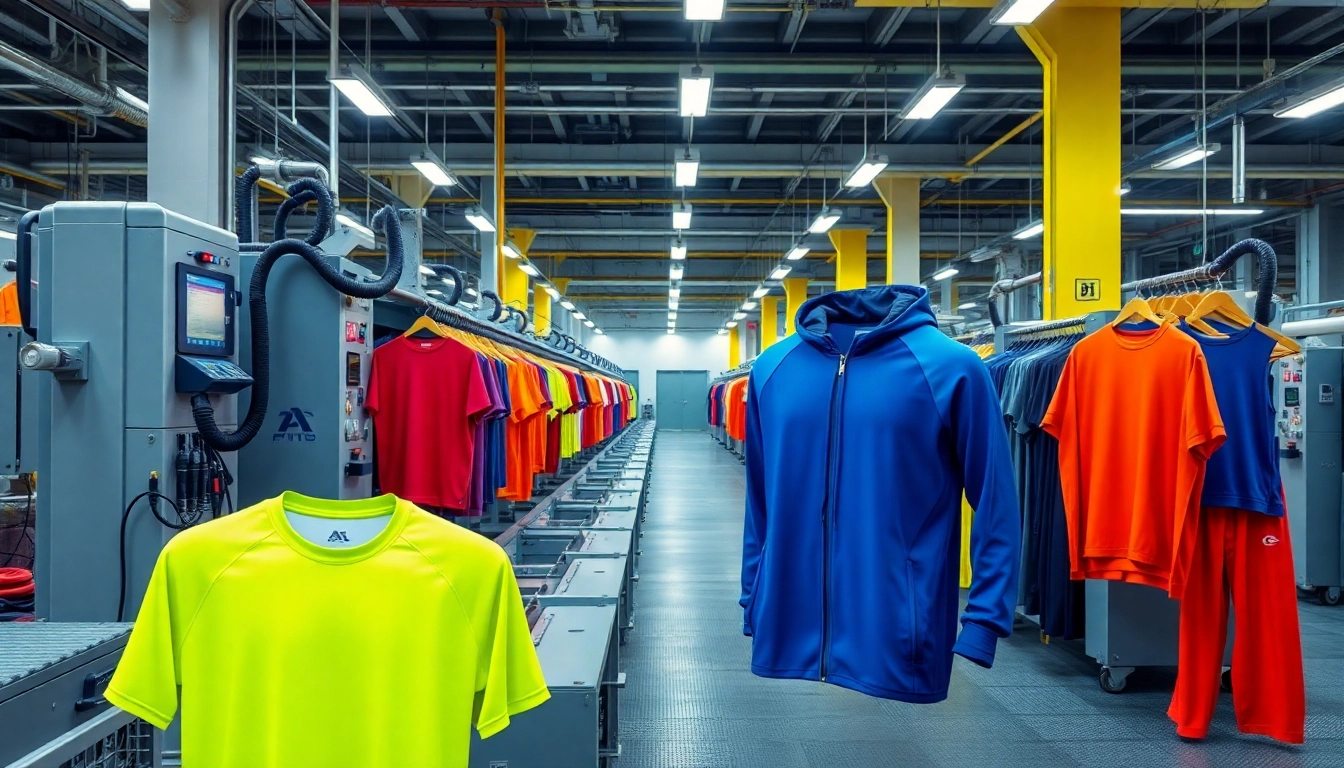Understanding Private Label Sportswear Manufacturing in Pakistan
In the dynamic world of sports apparel, private label manufacturing has emerged as a strategic avenue for brands seeking unique identity and enhanced market competitiveness. Particularly in Pakistan, a country renowned for its robust textile industry and manufacturing expertise, private label sportswear manufacturing offers exceptional opportunities for startups, established brands, and entrepreneurs alike. Whether you aim to launch a new line of athletic wear or expand your existing portfolio, partnering with a trusted Private Label Custom Sportswear Manufacturer in Pakistan can significantly streamline your operations, reduce costs, and guarantee product quality.
What is Private Label Sportswear?
Private label sportswear refers to products manufactured by a third-party company but branded and marketed under a retailer’s or brand’s name. This model allows brands to customize various aspects of their sports apparel—from fabric choices and designs to labeling and packaging—without investing heavily in manufacturing facilities. Essentially, it enables businesses to focus on branding, marketing, and customer engagement while the manufacturer handles production, quality control, and logistics.
Unlike generic wholesale buying, private labeling provides an opportunity to develop a distinctive brand identity. Companies can adapt their products to target specific consumer segments, whether professional athletes, fitness enthusiasts, or casual sportswear buyers. This flexibility in design and branding ensures that your product stands out in a crowded marketplace.
Overview of the Pakistani Sportswear Industry
Pakistan’s sportswear industry is a vital part of its extensive textile sector, which is the second-largest in Asia after China. Cities like Sialkot, Lahore, and Karachi have developed reputations as manufacturing hubs for sports and activewear, leveraging high-quality raw materials, skilled labor, and advanced machinery. This industry caters to global sports brands as well as domestic enterprises, offering OEM (Original Equipment Manufacturer) and private label manufacturing services.
International brands frequently outsource their production to Pakistani manufacturers due to cost-effectiveness and the ability to customize products at scale. The country’s proximity to key markets, competitive pricing, and commitment to quality certifications make Pakistan a preferred destination for private label sportswear manufacturing. Additionally, Pakistani manufacturers are increasingly adopting sustainable practices and technological innovations, enhancing their appeal to environmentally conscious and tech-savvy brands.
For companies looking to establish or expand their presence in the athletic apparel market, partnering with a local manufacturer helps reduce lead times, minimize logistical complexities, and capitalize on the industry’s growing capacity.
Advantages of Private Label Manufacturing for Brands
Cost Efficiency and Scalability
One of the primary benefits of private label manufacturing in Pakistan is the significant cost savings. Lower labor costs, economies of scale, and streamlined supply chains enable brands to produce high-quality sportswear at competitive prices. This cost efficiency allows brands to offer affordable products while maintaining healthy profit margins. Additionally, private labeling supports scalable production, making it easier to meet increasing demand without substantial investment in infrastructure.
Customization and Design Flexibility
Unlike off-the-shelf products, private label arrangements provide extensive customization options — from fabric blends, cut styles, and color schemes to branding elements like logos, tags, and packaging. This flexibility empowers brands to create exclusive collections aligned with current trends or specific athlete and consumer preferences.
Brand Control and Market Differentiation
Private label manufacturing enables brands to establish unique market positions. With tailored designs and branding, companies can differentiate themselves from competitors. This control over product identity also enhances customer loyalty and perception of quality, as consumers often associate exclusivity with premium products.
Speed to Market
Partnering with a competent Pakistani manufacturer facilitates faster turnaround times from design development to production and distribution. This agility is crucial in the fast-paced sportswear industry, where trends shift rapidly, and timely product launches can make or break market share.
Key Factors Choosing a Private Label Sportswear Partner in Pakistan
Manufacturing Capabilities and Customization Options
When selecting a manufacturing partner, scrutinize their production capacity, technological proficiency, and the breadth of customization options. Leading manufacturers like Extreme Sportswear offer a comprehensive range of services, including sublimation printing, heat transfer, embroidery, and cut-and-sew garments. Ensure the manufacturer can realize your specific design needs and produce in the quantities required.
Quality Assurance and Certifications
Quality control is paramount in sportswear manufacturing, given the performance and durability expectations. Choose a partner equipped with international quality certifications such as ISO, Oeko-Tex, or SA8000. Conduct sample testing and request references to verify consistency in production quality and compliance with safety standards.
Lead Times and Cost Efficiency
Effective supply chain management reduces lead times and inventory risks. Discuss manufacturing schedules, minimum order quantities (MOQs), and logistics arrangements early in the partnership. Balancing cost with reliable delivery schedules ensures seamless product launches and inventory management.
How to Collaborate Effectively with Your Sportswear Manufacturer
Design and Sample Development
Clear communication of your design vision is critical. Provide detailed sketches, tech packs, and fabric specifications. Request prototypes or samples to evaluate fit, quality, and branding accuracy. Iterative feedback and collaborative adjustments lead to a final product that meets your expectations.
Order Management and Communication
Establish efficient channels for order placement, progress tracking, and issue resolution. Regular updates through email, calls, or project management platforms streamline operations and preempt delays.
Branding, Packaging, and Delivery
Define your branding elements, including labels, tags, and packaging design. Coordinate with your manufacturer to ensure branding consistency. Arrange logistics in advance, considering customs, warehousing, and fulfillment requirements, to guarantee timely delivery to your customers.
Best Practices for Building a Successful Sportswear Brand
Market Trends and Consumer Preferences
Stay attuned to evolving trends such as athleisure, sustainable fabrics, and inclusive sizing. Conduct market research and gather customer feedback to refine product offerings and ensure relevance.
Product Differentiation and Innovation
Invest in product innovation—integrate cutting-edge technologies like moisture-wicking fabrics, anti-odor finishes, or compression apparel. Unique designs and functional features create a competitive edge.
Scaling Operations and Sustainability
As your brand grows, optimize manufacturing processes, expand supplier networks, and incorporate eco-friendly practices. Sustainable sourcing, ethical labor standards, and waste reduction are increasingly influential in consumer decision-making.
Future Outlook for Private Label Sportswear Manufacturing in Pakistan
Emerging Technologies and Trends
Technology-driven innovations like automation, smart textiles, and 3D customization are poised to revolutionize Pakistan’s sportswear manufacturing landscape. Integrating these advancements can enhance quality, reduce costs, and shorten lead times.
Expanding Global Presence
Pakistani manufacturers are actively expanding their international footprint by developing strategic partnerships, certifications, and marketing initiatives. This global outreach offers brands access to advanced manufacturing while maintaining agility.
Building Long-Term Partnerships
Long-term collaborations foster trust, continuous improvement, and joint innovation. By investing in transparent communication, quality standards, and shared growth goals, brands and manufacturers can thrive together amid the evolving market landscape.



